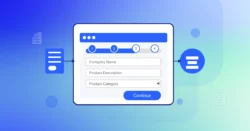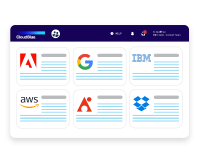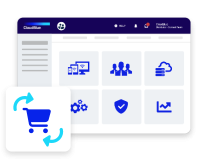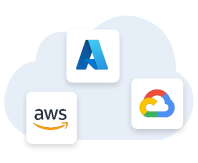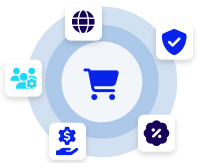Identity as a Service (IDaaS) is a cloud-based service model that provides identity and access management (IAM) functionalities to organizations. IDaaS enables SaaS providers and businesses to manage user identities, authentication, and access control for their applications and services in a centralized and scalable manner.
In Software as a Service (SaaS), IDaaS plays a crucial role in ensuring secure and seamless access to SaaS applications. Here’s how IDaaS relates to SaaS:
User Authentication and Single Sign-On (SSO): IDaaS simplifies user authentication by providing a centralized identity management system. It allows users to log in to multiple SaaS applications using a single set of credentials, eliminating the need for separate usernames and passwords for each application. SSO improves user experience and productivity while enhancing security by reducing the risk of password-related vulnerabilities.
Identity Lifecycle Management: IDaaS helps SaaS providers manage the entire lifecycle of user identities, including user onboarding, provisioning, role-based access control, and deprovisioning. It enables administrators to efficiently manage user accounts, permissions, and entitlements across various SaaS applications, ensuring that users have the right level of access based on their roles and responsibilities.
Multi-Factor Authentication (MFA): IDaaS typically includes support for multi-factor authentication, adding an extra layer of security to SaaS applications. MFA combines multiple authentication factors, such as passwords, biometrics, SMS codes, or hardware tokens, to verify a user’s identity. This enhances the security of SaaS applications by reducing the risk of unauthorized access, especially for sensitive data and critical business operations.
Security and Compliance: IDaaS providers implement robust security measures and compliance frameworks to protect user identities and ensure regulatory compliance. They often adhere to industry standards and best practices, such as encryption, secure protocols, audit trails, and access control policies, to safeguard user data and prevent unauthorized access.
Federated Identity Management: IDaaS supports federated identity management protocols, such as SAML (Security Assertion Markup Language) and OAuth, which enable seamless and secure integration between SaaS applications and external identity providers. This allows organizations to leverage their existing identity infrastructure, such as Active Directory or social identity providers, for authentication and access control in SaaS environments.
Self-Service User Portal: IDaaS solutions often provide self-service user portals, allowing users to manage their own profiles, reset passwords, update personal information, and request access permissions. This reduces the administrative burden on IT teams and empowers users to have more control over their identities and access rights.
IDaaS enables SaaS providers to focus on their core application functionality while leveraging a robust and scalable identity management solution. It ensures secure user authentication, seamless access to multiple SaaS applications, and centralized management of user identities and access control, enhancing both security and user experience in the SaaS environment.




